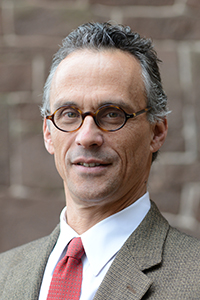Roth Disputes Narrative of ‘Coddled’ College Students in Op-Ed

Writing in the The Washington Post, President Michael Roth questions the predominant media narrative painting college students as “pampered with coddled minds.”
Roth argues that such denigration of young people by older generations is an age old tradition, dating back to the founding fathers shaking “their heads about dueling and drinking on campus.”
He writes:
When I look around my campus and visit others, I don’t find pampered students with coddled minds. I find math majors in the gym every day preparing for a soccer match or a swim meet. I find writers pulling all-nighters to finish a project working side by side with computer science students developing new software. There are more double majors than ever, and on every campus I visit there are impressive percentages of students doing volunteer work or creating organizations that will have a positive impact locally, even globally – be it making their campuses more sustainable or improving the education of girls in Africa. These hard-working, dedicated students fill the ranks of those now protesting for more equitable and inclusive educational institutions.
And just like older alumni, not all student activists see things the same way, Roth writes. “We are an educational institution: It is a good thing when we can articulate why and how we disagree.”
The image of students concerned only with the micro frustrations of everyday life as opposed to “real” issues bears no relation to the real students I encounter at colleges and universities. These students are well aware, for example, that climate change may significantly alter their lives, and that it will surely disrupt the lives of people around the world. They are learning about this accelerating catastrophe in STEM classes and political science seminars, and they are striving to find ways of mitigating its effects through sophisticated science and through policy analysis.
Our students are also well aware that they will graduate into an economy and society with greater inequalities and less social mobility than in any time since early industrialization. American college students recognize that powerful forces are dynamically increasing the accumulation of wealth in the hands of a few. They are studying how one can create robust economic growth without just reinforcing this inequitable trend, while grappling with a political arena ever more responsive to money. […]
Today, campuses are more diverse because some Americans fought for educational opportunities to be more equitably distributed. Thanks to their achievements, todays students have higher awareness and higher expectations, so we can expect continued tensions on our campuses. Racism and inequality are still powerful beyond the borders of the university, and campuses themselves are not immune.
These are not “minor” or “micro” issues, and our students know it. They are faced with a world beyond the university that is threatened ecologically, economically and culturally, and they are doing their best to prepare themselves for these challenges. They are studying physics and religion, design and economics, and sometimes they stand up and make themselves heard. Sometimes they are filled with rage, sometimes with fear. They will make mistakes, but they don’t need columnists to tell them that the main problem isn’t Halloween. If only it were.

